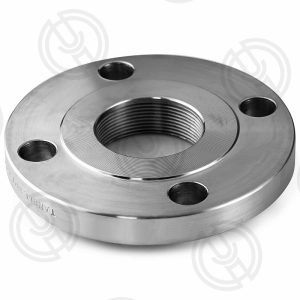Introduction
In the realm of industrial piping systems, flanges play a pivotal role in ensuring the integrity and reliability of connections. Among the various types of flanges available, ASTM A182 F53 flanges stand out for their exceptional yield strength, making them ideal for demanding applications in industries such as oil and gas, chemical processing, and marine engineering. This article delves into the characteristics of ASTM A182 F53 flanges, with a particular focus on their yield strength, and explores the benefits they bring to industrial operations.

Understanding ASTM A182 F53 Flange
The ASTM A182 F53 flange is a super-austenitic stainless steel flange designed to meet the stringent requirements of high-stress environments. It is composed of a blend of chromium, nickel, molybdenum, and other alloying elements that confer superior mechanical properties, including high yield strength. The F53 flange adheres to the ASTM A182 standard, which specifies the material, manufacturing, and testing criteria for steel flanges used in pressure-containing and pressure piping applications.
The Significance of Yield Strength in ASTM A182 F53 Flanges
Yield strength is a critical material property that indicates the maximum stress a material can withstand without permanent deformation. For flanges, yield strength is particularly important as it determines the flange’s ability to maintain structural integrity under operational loads. Here’s why the yield strength of ASTM A182 F53 flanges is of paramount importance:
Resistance to Deformation
The high yield strength of ASTM A182 F53 flanges ensures that they can resist deformation under high stress, which is essential for maintaining seal integrity in piping systems. This characteristic is particularly valuable in environments where flanges are subjected to fluctuating pressures and temperatures.
Safety and Reliability
By withstanding high stress without deformation, F53 flanges contribute to the overall safety and reliability of the piping system. They reduce the risk of leaks and failures, which can have catastrophic consequences in industries dealing with hazardous materials.
Design Flexibility
The robust yield strength of ASTM A182 F53 flanges allows engineers to design more flexible and efficient piping systems. Thinner wall thicknesses can be used without compromising structural integrity, leading to potential weight and cost savings.

Factors Affecting Yield Strength of ASTM A182 F53 Flanges
Several factors influence the yield strength of ASTM A182 F53 flanges:
1.Alloy Composition
The precise alloy composition of F53 flanges is tailored to achieve the desired yield strength. Chromium and nickel enhance the flange’s corrosion resistance and toughness, while molybdenum contributes to strength. The careful balance of these elements ensures that the flange can withstand high stresses.
2.Heat Treatment
Heat treatment processes, such as solution annealing and precipitation hardening, are employed to optimize the yield strength of ASTM A182 F53 flanges. These processes refine the microstructure of the steel, enhancing its mechanical properties.
3.Manufacturing Techniques
The manufacturing techniques used to produce ASTM A182 F53 flanges, including forging and machining, play a role in determining the final yield strength. Proper control of these processes ensures that the flanges meet the required specifications.
Benefits of ASTM A182 F53 Flanges in Industrial Applications
The superior yield strength of ASTM A182 F53 flanges offers several advantages in industrial settings:
Enhanced Structural Integrity
F53 flanges provide a robust foundation for critical piping connections, ensuring that systems can operate safely and efficiently even under extreme conditions.
Longevity and Durability
The high yield strength of these flanges, combined with their excellent corrosion resistance, means that they can withstand the test of time in harsh industrial environments.
Reduced Maintenance Costs
The reliability of ASTM A182 F53 flanges leads to fewer repairs and replacements, which can significantly reduce maintenance costs over the lifespan of a piping system.
Conclusion

ASTM A182 F53 flanges are engineered to excel in environments where high yield strength is a necessity. Their ability to maintain structural integrity under high stress makes them an invaluable component in the oil and gas, chemical, and marine industries. As the demand for robust and reliable materials continues to grow, ASTM A182 F53 flanges are poised to remain a preferred choice for engineers and designers. Manufacturers must continue to innovate and refine their production processes to ensure that these flanges meet the ever-increasing demands of modern industrial applications.
